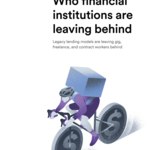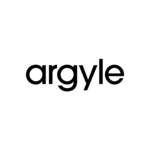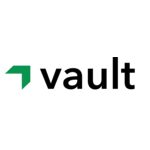Nearly Half of Gig, Freelance, and Contract Workers Are Denied Access to Financial Services They Can Afford, New Study Reveals
1099 Workers Not Granted Equitable Access to Basic Services That Require Proof of Credit-worthiness, Damaging Mental Health, Families, and Upward Mobility
NEW YORK–(BUSINESS WIRE)–#1099workers—Argyle, the leading employment data platform that provides companies access to user-permissioned employment records in real time, today announced findings from recent research about the impact of credit scores as a sole or primary means of income verification for 1099 workers. The Trends in Financial Access for 1099 Workers study gathered responses from over 1,200 gig workers, contract workers, and freelancers. Results reveal that the prevailing system of determining financial worthiness based on an individual’s credit score alone is overwhelmingly inequitable and insufficient for credit decisioning for this large and rapidly growing population. The findings also demonstrate that empowering this class of workers with their own employment data opens new possibilities for them to access vital financial resources that are currently out of reach for many due to legacy credit evaluation practices. Respondents shared that the lack of access had direct negative impacts on their mental health, families, and ability to improve their lives.
Credit score-first income verification standards don’t only have harmful consequences for 1099 workers. They are also a barrier to increased revenue opportunities for the businesses and institutions that provide financial, insurance, and housing services, preventing them from serving the total addressable market in the gig, freelance, and contract economies. With the number of 1099 workers expanding each year, this limitation equates to a massive missed opportunity industry-wide to optimize revenue potential—one that can be remedied by incorporating employment and income verification to make credit evaluation more fair and accurate.
1099 Workers Are Frequently Denied Access
Gig and freelance workers are continually denied access to essential resources and services at alarming rates, leading to negative mental health effects and challenging implications for their families.
While many 1099 workers have the funds to be eligible for essential services, the current standards for determining financial eligibility is preventing them from proving their eligibility. Nearly half (48.9 percent) of 1099 workers reported that they had been denied access to something they were confident they could cover financially, with 63.1 percent stating that this denial resulted from a low credit score.
More concerning still are the impacts of such barriers to access for 1099 workers. Of those denied access to something they knew they could financially afford, 52.2 percent faced negative mental health impacts and 42.9 percent faced negative consequences for their families as a result of the denial.
Credit Score Alone Does Not Fairly Depict Credit Worthiness
Credit score alone is not sufficient for accurately measuring freelance and gig workers’ credit-worthiness or ability to pay for financial services. Fifty-five percent of 1099 workers look at their credit scores all the time, but only 36.3 percent of gig workers know everything that goes into calculating their credit scores. Additionally, most gig, contract, and freelance workers (69.9 percent) think that employment records more completely reflect their ability to pay than credit score alone.
Argyle’s research reveals that while many 1099 workers check their credit score often, the lack of transparency regarding what factors into their credit scores, as well as credit score’s inability to tell the full story of a 1099 worker’s income, necessitate a supplement to credit score checks. The vast majority of 1099 workers (71.6 percent) and 74.2 percent of gig workers specifically believe that approval decisions related to ability to access financial services, insurance, and housing should be evaluated on additional or different information besides credit score alone.
Income Verification Practices are Failing 1099 Workers
Income verification has become a standard practice for financial institutions, housing providers, and other key industries, yet these entities lack a standard for income verification that treats gig and freelance workers equitably in their consideration for essential services.
While 81.8 percent of 1099 workers have been asked to verify their income from employment (by verification letter, social security number, etc.) in order to secure a loan, housing, or financial resources, more than a third of these individuals (36.5 percent) had difficulty getting their income from employment verified in the manner required by a lender, lessor, or landlord.
Faced with barriers in the income verification process, 63.9 percent of 1099 workers would be willing to share pay stub information with financial institutions, housing providers, and other key industries in order to supplement their credit score and prove their 1099 earnings.
The barriers to income verification access faced by many 1099 workers highlights the need for the increased adoption of a standardized employment data verification system through which individuals can verify their income easily while maintaining ownership of their sensitive information.
Income Verification Needs to Shift to Increase Access for Non-W-2 Workers
Despite the growing number of individuals in the United States turning to gig and freelance work, non-W-2 workers are not granted the consideration they deserve by financial institutions.
Over ninety percent (91.9 percent) of gig, freelance, and contract workers believe they should be entitled to the same consideration by financial institutions as W-2 workers, as nearly half of these individuals have been denied access to resources and services, often with negative consequences.
“The growing population of U.S. 1099 workers is going through a struggle—being denied fundamental financial services that are core to modern life— based on how their employment is characterized,” said Shmulik Fishman, CEO and co-founder of Argyle. “There is a shocking discrepancy in treatment by financial providers between 1099 workers and W-2 salaried workers. We heard from survey respondents who experienced housing insecurity and even homelessness, who were denied services based on a mistake on a credit report, who couldn’t get their kids to school, couldn’t save a sick family pet, or couldn’t travel to get critical healthcare because they had been denied an auto loan. Yet, these same individuals overwhelmingly reported their confidence and ability to pay for these services.”
The 1099 worker financial access equity gap revealed by this study substantiates one of the biggest problems that Argyle is on a mission to solve. From its start, the company has focused on increasing financial resource access to traditionally underbanked populations of workers by providing a real-time, complete picture of their financial ability and credit worthiness that is impossible to achieve with legacy systems.
Fishman continued, “It’s a harbinger of worse things to come if an alternative is not made available to gig workers, freelancers, and contract workers to prove their clear ability to pay for services they need to properly support themselves and their families. Employment data should absolutely be considered when determining 1099 workers’ eligibility for financial, insurance, and housing services, as it is a vastly more accurate assessment of non-W-2 workers’ income and overall ability to pay. There is also a significant opportunity for many businesses and institutions to fully optimize their financial potential by better serving the 1099 worker population.”
Additional Resources
- Report: Trends in Financial Access Survey Findings
- Argyle Verify, Self-serve Tool for Generating Income and Employment Verification
- Blog: Argyle Lands $55 Million in Series B Funding
About Argyle
Argyle is building the leading user-consent-based platform for employment data, helping people avoid situations where their personal information is sold or used without their consent or knowledge. With Argyle, any business can process income and work verifications, gain real-time transparency into earnings, as well as view and update worker profile details. By removing the barriers between a worker, the companies they make money from, and the business they buy services and products from, Argyle has reimagined how employment data can be leveraged to benefit both institutions and individuals.
Contacts
Amber Winans
Bhava Communications for Argyle
510-575-0492
[email protected]





































